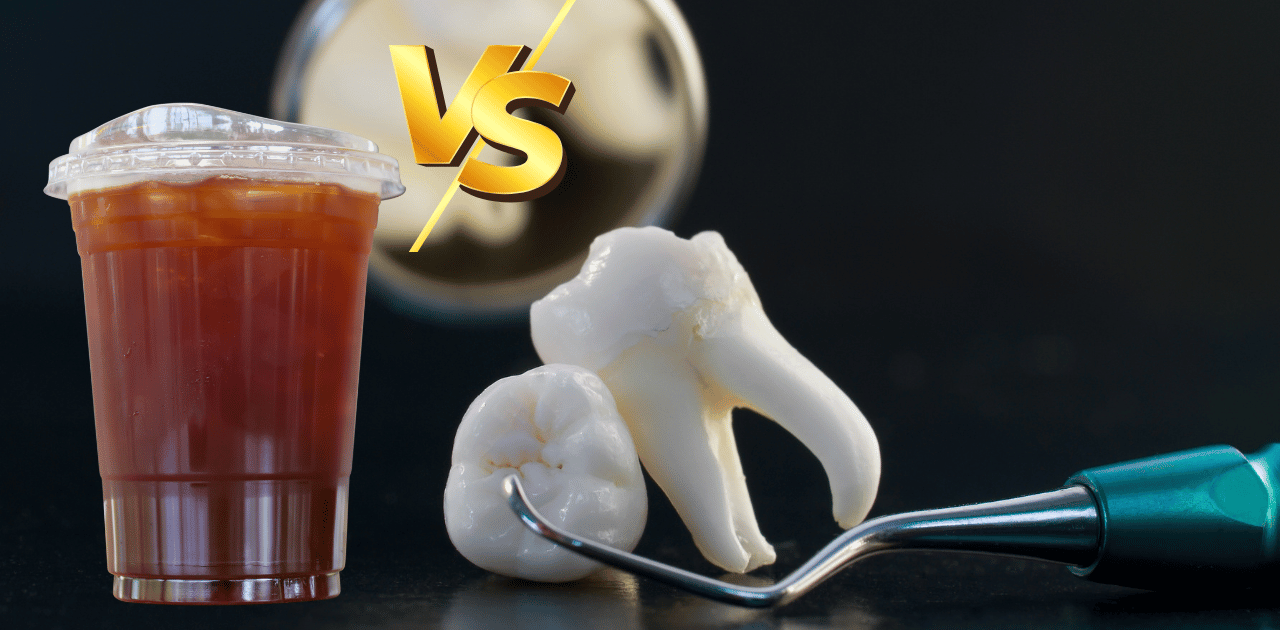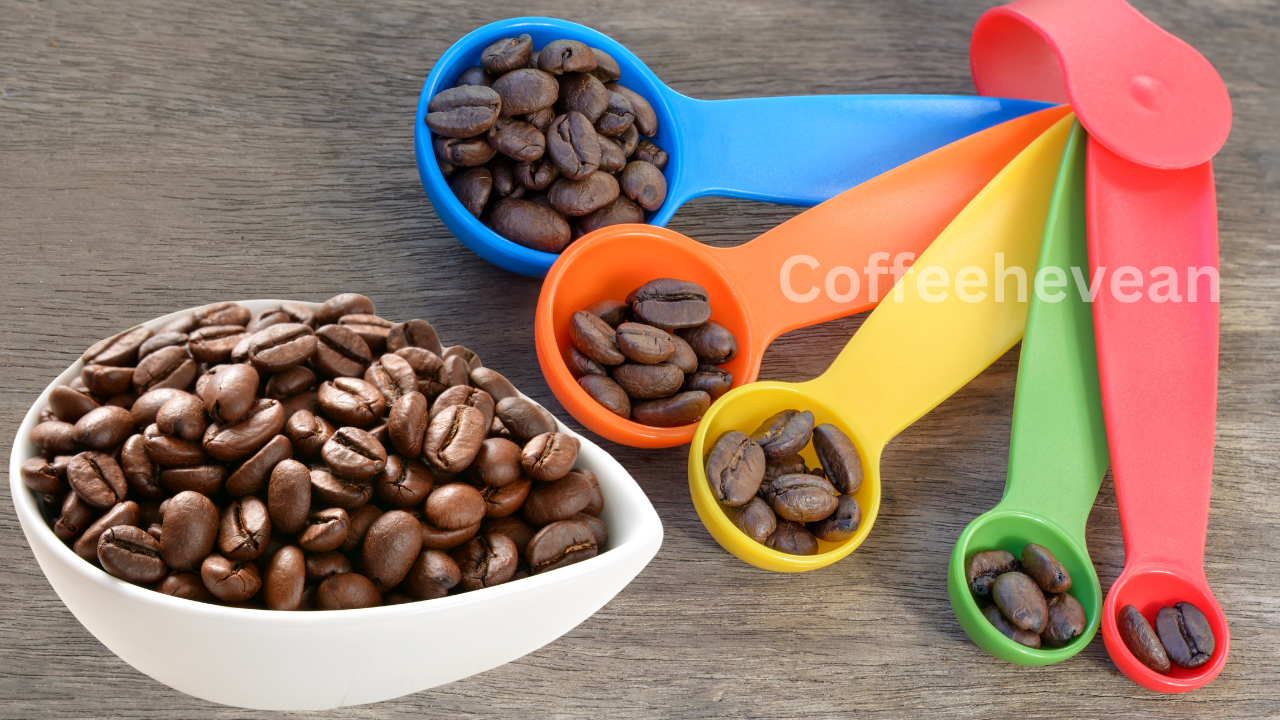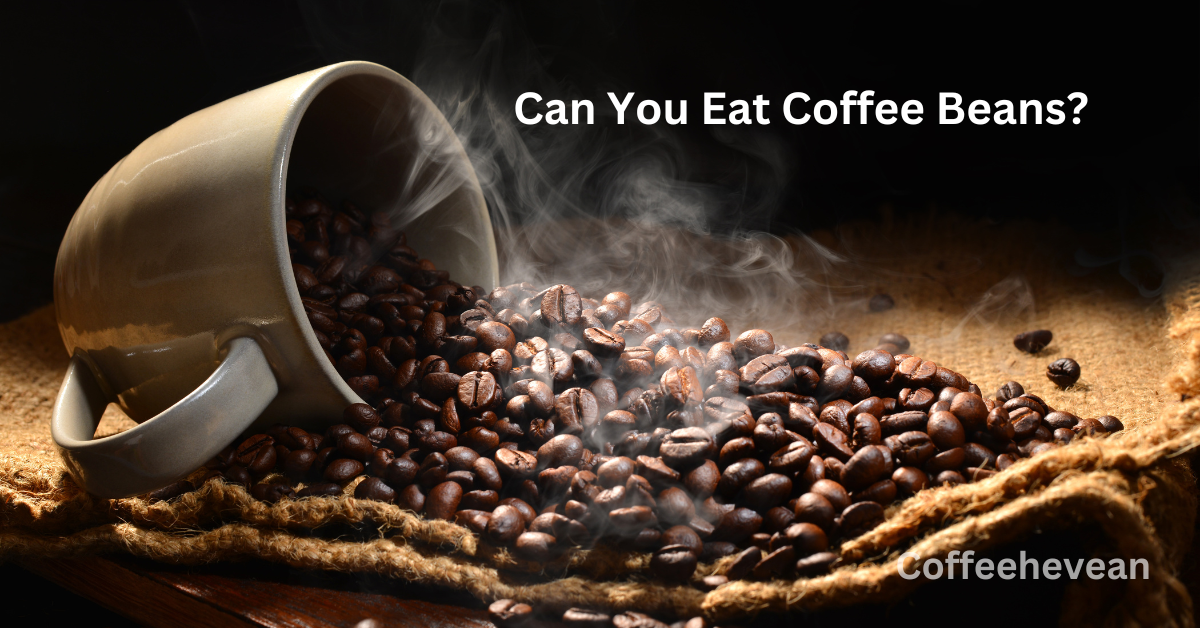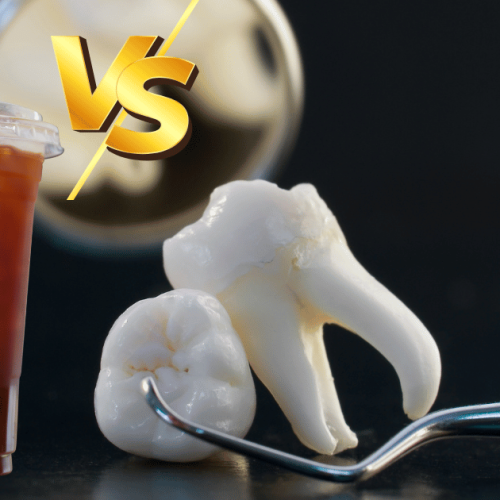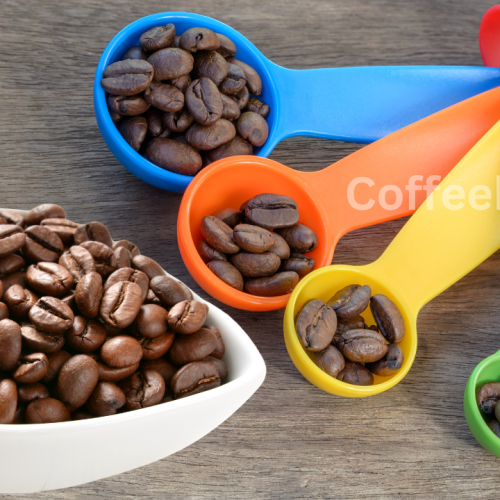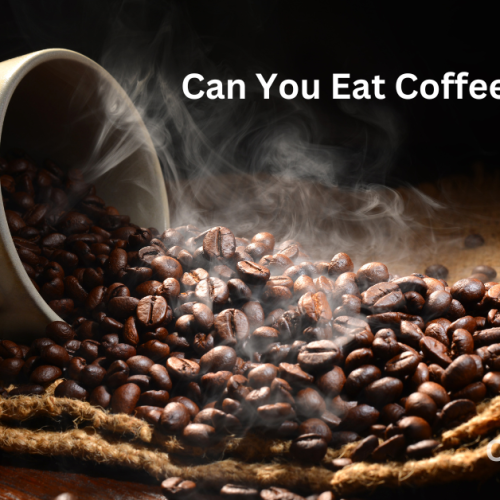Coffee beans are beloved for giving us the rich, aromatic coffee that powers our mornings, but have you ever wondered if you can eat them on their own? Surprisingly, many people do! Eating coffee beans has become popular among coffee enthusiasts, as it offers a quick energy boost and a burst of flavor. Coffee beans are packed with antioxidants, caffeine, and other nutrients that can potentially offer health benefits. However, while snacking on coffee beans might sound fun, it’s essential to understand both the perks and the downsides.
Eating coffee beans differs significantly from drinking brewed coffee due to the higher concentration of caffeine and other compounds. While some enjoy the health benefits, like improved focus and antioxidant intake, others may find the side effects — such as jitteriness or stomach discomfort — to be a drawback. In this guide, we’ll explore the benefits, potential risks, and best ways to enjoy coffee beans safely.
What Are Coffee Beans?
Coffee beans are the seeds found inside the berries of the Coffea plant.Coffee beans are the seeds found inside the fruit (or “cherry”) of the Coffea plant. Though called “beans,” they’re technically seeds and not legumes. There are two main types: Arabica and Robusta, each known for distinct flavors and caffeine levels. Arabica beans are generally sweeter and smoother, with hints of fruit or sugar, while Robusta beans are more bitter and have higher caffeine content, making them bolder.
Once harvested, coffee beans are typically dried, processed, and roasted to enhance their natural flavors. Roasting transforms the beans from their raw, green state into the aromatic, flavorful coffee beans we’re familiar with. These beans are then ground and brewed to make coffee, but they can also be enjoyed as a snack. Packed with antioxidants and caffeine, coffee beans provide unique health benefits, but they also carry some potential risks when eaten in large quantities.
Nutritional Profile of Coffee Beans
Coffee beans are small but packed with nutrition. They contain:
- Caffeine – Provides an energy boost and enhances mental focus.
- Antioxidants – Primarily chlorogenic acid, which has anti-inflammatory properties.
- Fiber – Though minimal, fiber aids digestion.
- B Vitamins – Including small amounts of niacin and riboflavin, which support energy production.
Can You Actually Eat Coffee Beans?

Yes, you can eat coffee beans, and in fact, they’re a popular snack for coffee enthusiasts looking for a quick caffeine boost. Eating coffee beans offers a more intense coffee flavor than brewed coffee and provides caffeine faster, as it doesn’t need to be digested in liquid form. People often eat them roasted, either plain or coated in chocolate for a sweeter treat.
While coffee beans are safe to eat in moderation, they’re more concentrated in caffeine than brewed coffee. This means that eating too many can lead to symptoms like jitters, increased heart rate, or trouble sleeping, especially if you’re sensitive to caffeine. Coffee beans are also naturally acidic, which may cause stomach irritation if eaten on an empty stomach. Generally, enjoying a handful of coffee beans occasionally is perfectly safe and can be a tasty, energizing snack.
Is it safe to eat coffee beans?
Yes, eating coffee beans is generally safe in moderation, and many people enjoy them as a quick, energizing snack. Coffee beans contain caffeine and antioxidants that can boost energy and offer some health benefits, such as improved mental alertness and anti-inflammatory effects. However, coffee beans have a concentrated amount of caffeine, so eating too many can lead to side effects like jitteriness, rapid heartbeat, or even insomnia, especially for those sensitive to caffeine.
Coffee beans can also be acidic, which may irritate the stomach lining, especially when eaten on an empty stomach. Additionally, eating them frequently may contribute to teeth staining due to their strong, dark color. To enjoy them safely, it’s recommended to limit your intake to around 6-8 beans per day, which provides a similar caffeine dose to one cup of coffee.
Health Benefits of Eating Coffee Beans
Antioxidants Powerhouse
Coffee beans are rich in antioxidants, particularly chlorogenic acid, which may reduce inflammation and support heart health. Eating coffee beans allows you to take in these antioxidants directly, which may be beneficial for your overall health.
Boosts Energy Levels
The caffeine in coffee beans provides a quick and powerful energy boost. Eating coffee beans delivers caffeine faster than drinking coffee, as it doesn’t require brewing. This can help improve focus, alertness, and even athletic performance.
Potential Risks of Eating Coffee Beans
Caffeine Overload
One of the main risks is consuming too much caffeine. Coffee beans have a concentrated amount of caffeine, and eating too many can lead to side effects like jitters, rapid heartbeat, and sleep disturbances. It’s essential to eat them in moderation.
Stomach Irritation
Coffee beans contain acids that can irritate the stomach lining, especially if eaten on an empty stomach. This can lead to discomfort, acid reflux, or heartburn in some people.
Teeth Staining
Coffee beans are acidic, which can stain tooth enamel over time. Eating too many can result in yellowing or dullness in teeth color, especially if not followed up with good dental care.
How Many Coffee Beans Can You Safely Eat?

The safe amount of coffee beans you can eat depends on your caffeine tolerance and sensitivity. Generally, about 6 to 8 roasted coffee beans provide roughly the same caffeine content as an 8-ounce cup of coffee, making this a safe range for most people to enjoy without experiencing negative effects.
Since coffee beans contain concentrated caffeine, eating too many can lead to side effects like jitteriness, increased heart rate, or trouble sleeping. It’s a good idea to start with just a few beans, especially if you’re sensitive to caffeine, and see how your body reacts. Also, consider spreading your intake throughout the day to avoid caffeine overload.
For pregnant women, children, and people with caffeine sensitivity or digestive issues, it’s best to avoid eating coffee beans or keep the amount very low to minimize any potential risks.
Best Ways to Eat Coffee Beans

Chocolate-Covered Coffee Beans
Chocolate-covered coffee beans are a popular treat and are often less bitter than plain beans. The chocolate helps mellow the strong coffee flavor, making it an enjoyable snack.
Raw Coffee Beans
Some adventurous coffee lovers enjoy raw coffee beans, though they’re much more bitter and harder than roasted beans. If you’re sensitive to bitter flavors, this may not be the best choice.
Roasted Coffee Beans
Roasted coffee beans are the most common type eaten. They offer a familiar coffee taste and a crunchy texture, making them a favorite for those who enjoy intense flavors.
How Eating Coffee Beans Compares to Drinking Coffee
Eating coffee beans and drinking coffee both provide caffeine and similar health benefits, but there are key differences in how they affect the body. Here’s a comparison:
- Faster Caffeine Absorption
- Eating: Caffeine from coffee beans enters the bloodstream faster because it doesn’t need to be digested like brewed coffee. This results in a quicker, more intense energy boost.
- Drinking: Caffeine in liquid form is absorbed more gradually, leading to a slower, steady increase in energy.
- Caffeine Concentration
- Eating: Coffee beans have a higher concentration of caffeine per ounce, so it’s easy to consume more caffeine quickly, which may lead to jitters if overdone.
- Drinking: Coffee is more diluted, allowing for more controlled caffeine intake over time.
- Antioxidant Intake
- Eating: Whole coffee beans contain more antioxidants, such as chlorogenic acid, as these compounds can break down during brewing. Eating beans can offer more direct antioxidant benefits.
- Drinking: While still rich in antioxidants, brewed coffee loses some during the heating process.
- Potential for Digestive Issues
- Eating: Coffee beans are acidic, which may irritate the stomach or cause discomfort if eaten on an empty stomach.
- Drinking: Brewed coffee can also be acidic, but it’s less concentrated, making it easier on the stomach for some people.
- Teeth Staining
- Eating: Chewing coffee beans can increase the risk of staining teeth over time due to direct contact with the concentrated dark pigments.
- Drinking: Brewed coffee also stains teeth but generally to a lesser extent, especially if consumed with a straw or rinsing afterward.
Who Should Avoid Eating Coffee Beans?
Certain individuals should avoid eating coffee beans or consume them in very limited amounts due to the high concentration of caffeine and other potential side effects. Here are some groups who should be cautious:
- People Sensitive to Caffeine
Those who are sensitive to caffeine may experience symptoms like jitteriness, rapid heart rate, or headaches from eating coffee beans, as they contain a higher caffeine concentration than brewed coffee. - Pregnant Women
Pregnant women are advised to limit their caffeine intake to reduce the risk of complications like miscarriage or low birth weight. Since coffee beans have concentrated caffeine, it’s best to avoid them or consume them in very small amounts. - People with Heart Conditions
Individuals with heart conditions, such as arrhythmias or high blood pressure, should avoid eating coffee beans. The high caffeine content may increase heart rate or cause palpitations, which can exacerbate these conditions. - Those with Stomach Issues
Coffee beans are acidic and can irritate the stomach lining. People with conditions like acid reflux, ulcers, or gastritis may experience discomfort or worsening symptoms after eating coffee beans. - Children
Since coffee beans are very concentrated in caffeine, they are not recommended for children. Caffeine can have stronger effects on children, including hyperactivity and difficulty sleeping. - People on Certain Medications
Some medications can interact with caffeine, potentially leading to unwanted side effects. If you’re on medications, particularly those related to heart health or mental health, consult a healthcare provider before consuming coffee beans.
Do Different Types of Coffee Beans Taste Different?
Yes, different types of coffee beans do taste different! The flavor of coffee beans is influenced by several factors, including their variety, growing region, processing method, and roasting technique. The two main types of coffee beans—Arabica and Robusta—have distinct flavor profiles:
- Arabica Coffee Beans
- Flavor: Arabica beans are known for their smooth, mild taste with a wide range of flavors. You may notice hints of sweetness, fruitiness, and floral notes. They tend to have a complex flavor profile, with flavors like berries, chocolate, and nuts.
- Caffeine Content: Arabica beans contain less caffeine than Robusta, which contributes to their smoother taste.
- Common Use: These beans are typically used for high-quality coffees and specialty brews, often found in premium blends.
- Robusta Coffee Beans
- Flavor: Robusta beans are stronger, more bitter, and have a more earthy or woody flavor compared to Arabica. They are less complex and can have a slightly nutty or even rubbery taste.
- Caffeine Content: Robusta beans have higher caffeine content, which makes them more bitter and gives a stronger “kick.”
- Common Use: Robusta is commonly used in espresso blends and instant coffee due to its bold flavor and higher crema production in espresso.
- Liberica and Excelsa Beans
- Liberica: These beans have a distinct smoky, woody flavor with a slight fruity sweetness. They are less commonly found but are popular in certain regions like the Philippines.
- Excelsa: Often considered a subtype of Liberica, Excelsa beans have a complex flavor profile with a balance of fruity, tart, and spicy notes.
Tips for Eating Coffee Beans Safely
- Start with a Small Amount – Gauge your tolerance, especially if you’re new to eating coffee beans.
- Avoid Late in the Day – Eating coffee beans can disrupt sleep due to the high caffeine content.
- Brush Your Teeth – After eating, brush to prevent teeth staining.
- Choose Roasted Beans for Easier Digestion – Roasted beans are easier on the digestive system than raw ones.
- Enjoy with Food – Eating beans with a snack can help prevent stomach irritation.
Conclusion
Eating coffee beans can be a delightful experience for coffee lovers looking for a quick energy boost and an intense coffee flavor. With health benefits like antioxidant intake and increased alertness, they offer unique perks that set them apart from brewed coffee. However, it’s essential to be mindful of the potential risks, such as caffeine overload, stomach irritation, and teeth staining. By enjoying coffee beans in moderation and choosing the right type, you can savor the experience safely and with minimal side effects.
Frequently Asked Questions (FAQs)
- Are coffee beans safe to eat every day?
Yes, in moderation, eating a few coffee beans daily is generally safe, but excessive intake may lead to caffeine-related issues.
- How many coffee beans are equal to a cup of coffee?
Approximately 6-8 coffee beans provide the same caffeine content as one 8-ounce cup of coffee.
- Do coffee beans taste different when eaten?
Yes, they have a much stronger flavor than brewed coffee, often with a bitter, intense taste that varies based on the roast.
- Can eating coffee beans help with weight loss?
Coffee beans contain caffeine and chlorogenic acid, which may support metabolism, though they’re not a substitute for a balanced diet.
- Is it better to eat roasted or raw coffee beans?
Roasted beans are generally preferred for their milder taste and ease of digestion compared to raw beans.

